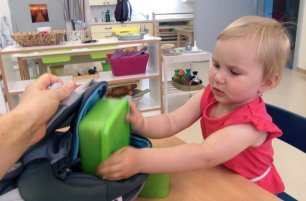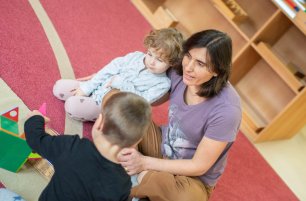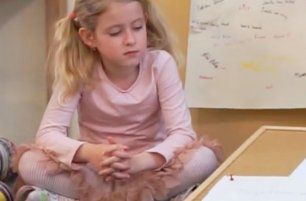Food preparation
Food Preparation activities are very popular in a Montessori classroom. Not only do children enjoy eating food they’ve prepared themselves, but they learn skills throughout the process.
The food preparation tasks, which increase in complexity as a child ages, help children practice motor skills, such as pouring, twisting and squeezing as well as help develop their pincer grip, coordination and finger and hand strength. Children also discover a variety of foods, that they are eager to try since they helped prepare them. Preparing and serving food is a natural way for children to learn cooperation, experience community and relish the simple pleasure of preparing something for their own enjoyment.
Enjoy our video from the toddler and primary classrooms.
Want to learn more? Read our next article:




